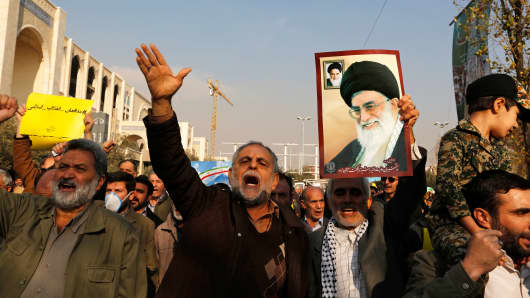"Two weeks ago, President Trump terminated the United States' participation in the Joint Comprehensive Plan of Action (JCPOA), more commonly known as the Iran nuclear deal," Secretary of State Mike Pompeo started his speech at the Heritage Foundation on Monday.
"President Trump withdrew from the deal for a simple reason," he continued. "It failed to guarantee the safety of the American people from the risks created by the leaders of the Islamic Republic of Iran."
Thus Pompeo began a talk grounded more in fantasy than strategy.
He spoke repeatedly of an Iranian "march across the Middle East," painting Tehran as the mastermind of regional instability which poses an active, existential threat to U.S. friends and allies.
The "path forward," as Pompeo described it, is for Iran to submit to onerous new U.S. sanctions and concede to a long list of demands. It is a list so exacting it is difficult to believe, as Daniel Larison notes at The American Conservative, that Pompeo could sincerely think it is a step away from conflict: The "ultimatum is so extensive and unreasonable that we have to assume that the administration intends for it to be rejected."


